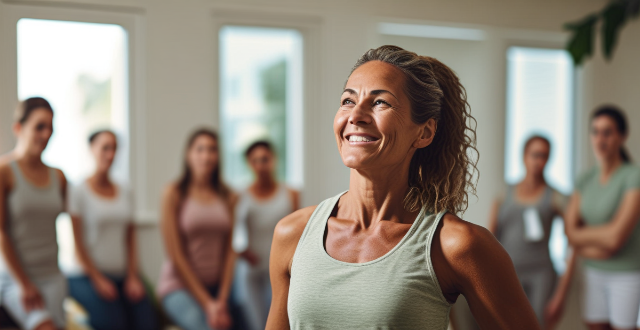Counseling can help women cope with body image issues by identifying the root cause, challenging negative thoughts, developing healthy coping mechanisms, building self-esteem, addressing mental health concerns, and providing ongoing support.

How Can Counseling Help Women Cope with Body Image Issues?
Body image issues are a common problem among women of all ages. These issues can range from feeling insecure about one's appearance to experiencing severe anxiety and depression due to body dissatisfaction. Counseling can be an effective way for women to cope with these issues and improve their overall well-being. In this article, we will discuss how counseling can help women overcome body image issues.
1. Identifying the root cause of body image issues
The first step in addressing body image issues is to identify the root cause of the problem. This may involve exploring past experiences, such as childhood trauma or negative comments from family members or peers, that have contributed to the development of negative body image beliefs. Counseling can provide a safe space for women to share their experiences and work through these issues with the support of a trained professional.
2. Challenging negative thoughts and beliefs
Negative thoughts and beliefs about one's body can be deeply ingrained and difficult to change. However, counseling can help women challenge these thoughts and replace them with more positive and realistic ones. This process involves identifying and questioning the validity of negative thoughts, as well as practicing self-compassion and acceptance.
3. Developing healthy coping mechanisms
Counseling can also help women develop healthy coping mechanisms for dealing with body image issues. This may include mindfulness techniques, such as deep breathing or meditation, as well as engaging in activities that promote self-care and relaxation, such as exercise or spending time with loved ones.
4. Building self-esteem and confidence
Body image issues can often lead to low self-esteem and a lack of confidence in one's abilities. Counseling can help women build self-esteem by focusing on their strengths and accomplishments, rather than solely on their appearance. Additionally, counseling can provide opportunities for women to practice assertiveness and develop a stronger sense of self-worth.
5. Addressing underlying mental health concerns
In some cases, body image issues may be related to underlying mental health concerns, such as depression or anxiety. Counseling can help women identify and address these concerns, which may contribute to improved body image and overall well-being.
6. Providing ongoing support and guidance
Finally, counseling can provide ongoing support and guidance for women as they work through body image issues. This may involve regular check-ins with a counselor, participation in group therapy sessions, or access to resources and tools for continued self-improvement.
In conclusion, counseling can be an effective way for women to cope with body image issues and improve their overall well-being. By identifying the root cause of the problem, challenging negative thoughts and beliefs, developing healthy coping mechanisms, building self-esteem and confidence, addressing underlying mental health concerns, and providing ongoing support and guidance, counseling can help women achieve a more positive relationship with their bodies and themselves.